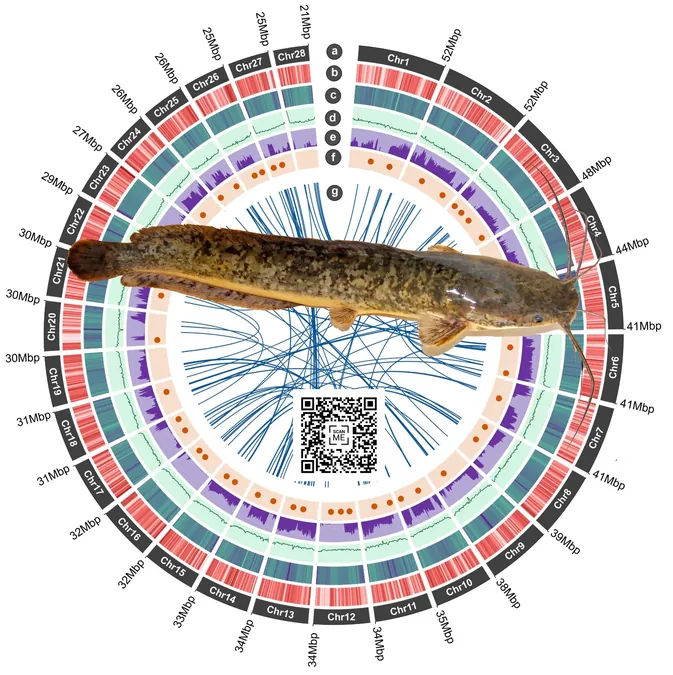
Breakthrough in Aquaculture: Researchers Successfully Decode the Genome of the African Catfish!
2024-11-21
Author: John Tan
Introduction
In a game-changing advancement for aquaculture, scientists at the Research Institute for Farm Animal Biology (FBN) in Dummerstorf have successfully decoded the genome of the African catfish (Clarias gariepinus) in collaboration with international research partners. This groundbreaking study was recently published in the prestigious journal Scientific Data and marks a pivotal moment in genetic research related to fish farming.
Importance of the African Catfish
The African catfish is a key player in global fish production, prized for its rapid growth, environmental adaptability, and disease resistance. Despite being one of the most cultivated fish species in aquaculture, its genome had only been partially decoded until now. Utilizing state-of-the-art sequencing technologies, researchers have achieved a near-complete haplotype-resolved genome assembly—covering an impressive 99.96% of the species’ genetic material.
Genomic Analysis and Its Implications
With an estimated 969.62 million base pairs and a diploid chromosome set consisting of 56 chromosomes, the full genome analysis allows for a deeper understanding of the genetic diversity among African catfish populations. "This genome decoding not only enhances the breeding and cultivation practices for African catfish but also sheds light on fish evolutionary biology," says Prof. Dr. Tom Goldammer, head of the Fish Genetics working group at FBN.
Future Research and Applications
The researchers are optimistic that this breakthrough will serve as a vital tool for further studies, making a significant leap forward in understanding this fascinating aquatic species. The research findings will be made available to the global scientific community, opening the doors for exceptional future studies.
Breathing Mechanism Discovery
Furthermore, the African catfish's remarkable ability to breathe both through gills and air has also captured researchers' attention. They have identified 50 genes that facilitate this unique mechanism, promising exciting developments in evolutionary research and potential applications in aquaculture.
Local Impact and Sustainability
In addition to the genomic milestone, the project enhances catfish breeding strategies specifically in regions like Mecklenburg-Western Pomerania, where local company Nutrition & Food GmbH currently produces around 500 tons of African catfish annually. This research not only aims to boost aquaculture's efficiency but also looks to increase animal welfare and minimize ecological impact through improved farming practices.
Conclusion
With a strong emphasis on sustainability and innovation, this research heralds a new era for aquaculture, where science meets practical, progressive solutions to global food demands. Stay tuned as this story unfolds; the future of fish farming has never looked so promising!


 Brasil (PT)
Brasil (PT)
 Canada (EN)
Canada (EN)
 Chile (ES)
Chile (ES)
 España (ES)
España (ES)
 France (FR)
France (FR)
 Hong Kong (EN)
Hong Kong (EN)
 Italia (IT)
Italia (IT)
 日本 (JA)
日本 (JA)
 Magyarország (HU)
Magyarország (HU)
 Norge (NO)
Norge (NO)
 Polska (PL)
Polska (PL)
 Schweiz (DE)
Schweiz (DE)
 Singapore (EN)
Singapore (EN)
 Sverige (SV)
Sverige (SV)
 Suomi (FI)
Suomi (FI)
 Türkiye (TR)
Türkiye (TR)